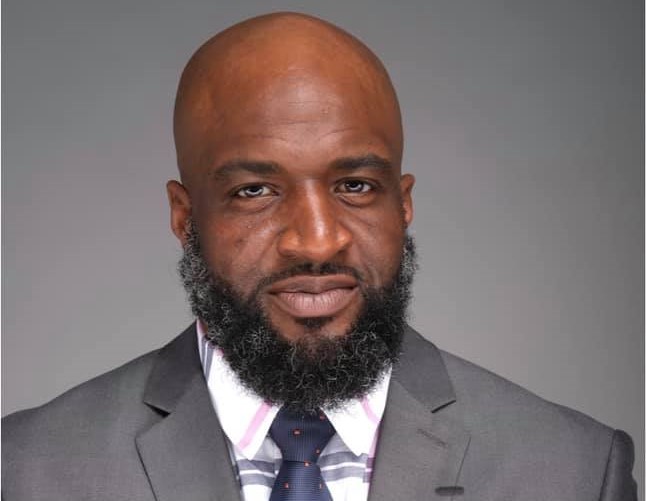
Twenty Highest-Paid Superintendents in New Jersey
July 17, 2023
NEW VIDEO: In Its First Year, Newark Common App Achieves Equity for Families. Here’s How.
July 17, 2023GOODMAN: Intentionally Complex Tests Don’t Make the Grade for Prospective NJ Teachers
Robert Goodman is the Executive Director of the New Jersey Center for Teaching and Learning and a former NJ Teacher of the Year.
At first, I was surprised to learn that some educators, including the presidents of the New Jersey Education Association and Public Charter Schools Association, are pushing the state to eliminate the Core Praxis exam requirement for new teachers. These purport to be standardized tests of general knowledge in reading, writing, and math. By reducing the requirements to become a NJ teacher, I was quick to assume that would mean lowering the quality of teachers, and thereby the quality of education delivered in New Jersey classrooms.
Yes, many New Jersey school districts are desperate for more teachers, especially in the STEM areas. But eliminating tests that are currently required of all teachers would just seem like giving up our standards to quickly solve a problem.
I’ve always been a fan of the companion Praxis II Subject Tests which are required by the state for teachers of specific subject areas. They have proved invaluable in setting a minimum standard for the content knowledge a teacher must possess. Those tests have guided the work of my organization, New Jersey Center for Teaching and Learning (NJCTL) in producing many fine teachers of mathematics and science.
I assumed the same would be the case for the three Core Praxis Exams that claim to measure general reading, writing, and math skills. Alas, no.
After taking the time to read the exam descriptions and take sample tests posted by a test prep company, I now understand why I had heard from many other educators that the Core Praxis exams are unnecessary obstacles in the path of prospective teachers. Not only do the exams exacerbate the state’s teacher shortages, they dissuade potentially good educators from ever getting in front of a classroom.
The tests – especially Reading and Writing – are difficult and tedious. The reading passages are torturous in length with language that seems deliberately obtuse, confusing, and absolutely boring.
Questions are not focused on basic literacy, but on terminology which may not even be understood by a professional who teaches English classes. The test does absolutely nothing to gauge the readiness of a Pre-K teacher – or even a high school teacher – of any subject other than, perhaps, Advanced Placement English. (And even then this test begs for refinement.)
Consider my opinion as a professional educator who has written, read, and spoken English for many decades, reads dozens of books a year, writes every day, and has earned a doctorate. I struggled through these tests. How would that same test go for a person for whom English is a second language?
A case in point is Dr. Angello Villarreal, a Spanish teacher at Freehold Township High School. He passed reading and mathematics on his first try, but writing seemed impossible. After taking the exam nine times at a cost of $810, he finally passed. He shared with me: “My first son was born, and as a young father I almost gave up as I needed to save money and work more knowing that student-teaching (not paid) was coming.”
This Praxis Core writing exam could have stopped Dr. Villarreal from being an educator. But the test did not reflect his writing ability; he has published numerous articles, a dissertation, and a book chapter.
If the material assessed in the Core Praxis Exam needs to be tested at all, it should be elsewhere in the English Praxis II Subject test, not in an assessment that must be passed to become a teacher of any subject.
The same is true for the Core Praxis Mathematics test. It goes well beyond the numeracy and arithmetic skills that all teachers need. Those higher-level mathematics skills should be assessed in the relevant Praxis II Subject Tests, not in this complex test that even kindergarten teachers must somehow pass.
This is especially critical as New Jersey moves to universal Pre-K, which will require thousands of new teachers. These tests will screen out many prospective educators by demanding skills they will never, ever need.
Yes, rigorous tests are needed to maintain quality. If these Core Skills tests assessed the sort of reading, writing and mathematics skills that we would expect of any educated person, I could understand why we would require that all prospective teachers pass them. But these tests are way off the mark.
If you still believe the three Core Praxis tests should remain a blanket requirement for all teachers, no matter what they teach, please take them yourselves. You’ll quickly see what I mean.





2 Comments
It is interesting that Bob Goodman claims that he does not believe in lowering standards for those who wish to become teachers. NJCTL’s students are generally unable to pass subject-area exams. That is because their coursework falls only on pedagogy and not subject-area content. When NJCTL’s students fail to pass their Chemistry and Physics Praxis exams, they are given NJCTL form letters (processed and rubber-stamped by Director Melissa Axelssen) that allow them to teach in schools that hold STEM programs. The NJDOE has approved this practice without any consideration of how it impacts young students. Parents have complained, but of course, their concern falls on deaf ears among those who could end the problem.
If one cannot pass a Praxis exam for a subject or skill set, one should not enter the teaching field until one is able. Praxis exams are quite challenging, including those of reading and writing (areas that are essential for any teaching professional), but by no means unreasonable or impossible to overcome. Students from Rutgers, Rowan, Rider, Wm. Paterson, College of NJ … Kean are able to pass these exams, even if it takes them more than one attempt, but then these students have been exposed to regionally accredited fundamentals.
NJCTL is not regionally accredited for obvious cause and has failed to gain this important categorization over a number of years, after a number of unsuccessful attempts. This has been revealed by a number of educators and DOE sources. Therefore, any claims by any of NJCTL’s representatives, regarding Praxis exams or otherwise, should be taken with caution. Most states, if not all beyond NJ, shun NCTCL’s programs and will not grant NJCTL’s “graduates” certification. It is highly unlikely that NJCTL will achieve regional accreditation considering its continued absence of comprehensive content. The fact that NJCTL may “partner” with an regionally accredited institution does not make NJCTL regionally accredited or respected by certification offices throughout the nation.
Incidentally, NJCTL does not presently hold partnership with any NJ regionally accredited college, but rather an institution in Colorado. That speaks volumes and should raise suspicions.
Per NJCTL’s “Grad and Continuing Ed” page, the following was recently added: NJCTL is a duly authorized NJ Graduate School of Education (GSE) on track to accreditation. Some states and districts accept NJCTL courses and degrees because we are duly authorized GSE, others do not because we are not yet accredited. Where needed, credits from our accredited partner may be accepted.”
An institution that is “on track” toward accreditation has not achieved the proper status to operate. Until such time, it should not be allowed to operate in NJ. Perhaps either NJ Education Report or nj.com should investigate this situation before even more are misled.